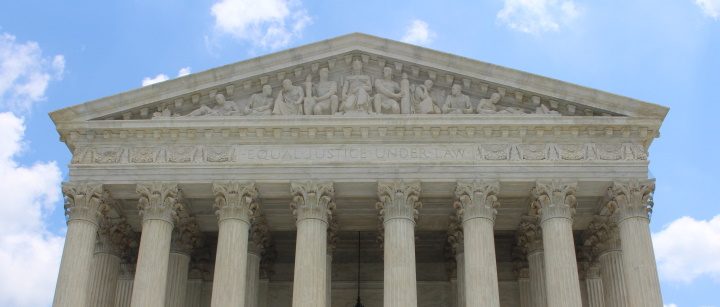Supreme Court Curbs Nationwide Injunctions, Birthright Citizenship Battle Intensifies
Supreme Court Curbs Nationwide Injunctions, Birthright Citizenship Battle Intensifies

The Supreme Court, in a significant ruling on June 27, has granted the Trump administration’s request to partially halt nationwide injunctions that blocked President Donald Trump’s executive order concerning birthright citizenship. The 6-3 decision, penned by Justice Amy Coney Barrett, asserts that “universal injunctions” issued by district judges likely exceed their equitable authority.
This landmark ruling effectively prevents federal district judges from issuing sweeping injunctions that shield everyone in the country from an administration policy, instead limiting relief primarily to the parties directly involved in the case. While the Court did not rule on the constitutionality of Trump’s January 20 executive order—which seeks to exclude children born in the U.S. to parents illegally present or on temporary visas from birthright citizenship—it cleared the path for the order to potentially take effect for new births.
President Trump hailed the decision, calling it a “monumental victory” for the Constitution and the separation of powers. The executive order, if fully implemented, would apply to children born on or after February 19, 2025, with the Court’s ruling allowing it to proceed approximately 30 days from the June 27 decision.
In response to the ruling, legal challenges are quickly evolving. Several plaintiffs, including immigrant rights groups and the ACLU, have swiftly refiled their lawsuits as class-action cases in states like Maryland and New Hampshire. This legal maneuver aims to achieve broader relief by representing a larger group of similarly affected individuals, rather than relying on the now-limited universal injunctions.
Legal experts offer mixed predictions on the ultimate impact. Some, like Professor Samuel Bray, believe that the shift to class actions will continue to thwart the executive order, preventing any significant change to birthright citizenship. However, others, such as Professor Amanda Frost, warn of the potential for “patchwork citizenship” if class-action attempts are unsuccessful, leading to an inconsistent application of citizenship status across states for children born in the U.S. The battle over birthright citizenship and the scope of judicial power is far from over.
Disclaimer: This content is aggregated from public sources online. Please verify information independently. If you believe your rights have been infringed, contact us for removal.